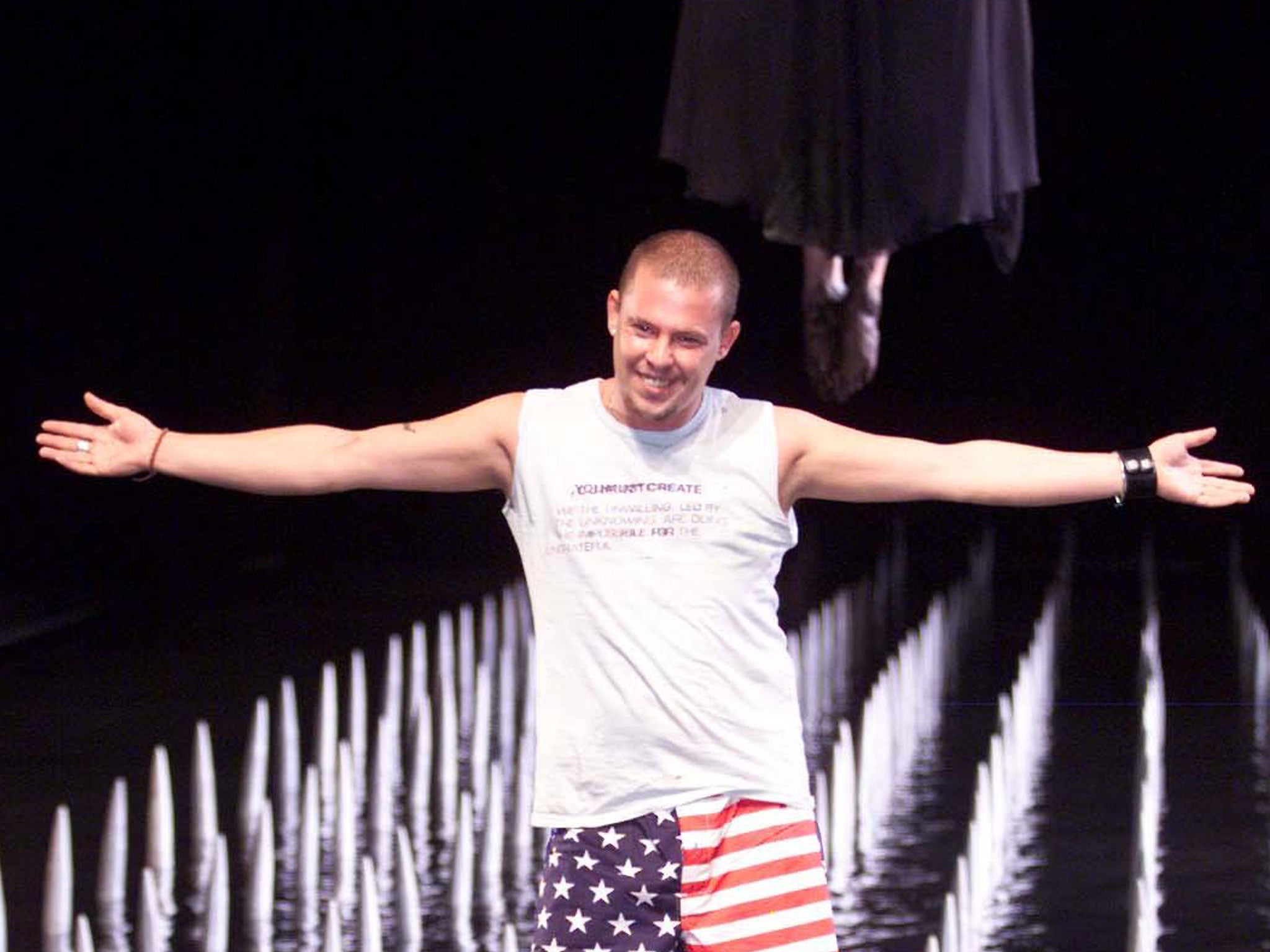Alexander McQueen: Blood Beneath the Skin by Andrew Wilson, book review
The designer is portrayed as a modern-day Mozart of the rag trade

Lee Alexander McQueen's style bible was the legendary Colin McDowell’s Directory of Twentieth Century Fashion. Its opening chapter, entitled 'Clothes as a Weapon', could be seen as the key to understanding the brilliant, troubled, complex man that was Alexander McQueen.
Everyone loves a rags-to-riches story. McQueen rose from council house origins to a multi-million pound empire (in his will he left £20 million to his charity). His success was achieved through sheer hard work. Andrew Wilson’s magnificent biography shows how, far from being an eccentric Edward Scissorhands who could transform a piece of cloth into a fabulous coat ‘with a few manic flashes of his shears’, McQueen was a grafter, a perfectionist, obsessed by the tiniest detail, perhaps happiest in his formative years on Savile Row, spending hours and hours padding labels and sewing all day (including writing obscenities in the linings of the Prince of Wales’s suits).
He comes across as a modern-day Mozart, unpredictable, rebellious, kind, witty, clever, scatological, but always with the unique talent and creative genius shining through.
His inexorable rise to chief designer at Givenchy and the building of his own fashion empire came at a high price. He was a toxic combination of arrogance and insecurity - he knew how good he was and yet he was desperately insecure, needy and controlling. Wilson does not shy away from McQueen’s dark side, including the shocking admission that he carried on having unprotected sex despite being HIV positive, but always the admiration shines through.
Wilson traces the darkness in McQueen to the sexual abuse inflicted upon him as a young boy. That small boy witnessed the same man, McQueen’s brother-in-law, beating his favourite sister on the slightest pretext. She was badly beaten for having the temerity to order herself a cup at tea at a café, and she lost two babies as a result of domestic violence.
When McQueen was later accused of misogyny, he was livid: ‘I’ve seen a woman get nearly beaten to death by her husband. I know what misogyny is! I hate this thing about fragility and making women feel naïve…I want people to be afraid of the women I dress’. This, Wilson argues, is central to his vision. He made clothes for women who earned their own money and bought his clothes because wearing them made them active not passive, and potentially dangerous.
It’s a challenge for a biographer to bring someone alive without diaries and letters, but for Wilson, this poses no problem: his subject bounds across the pages and is brought to life by extensive interviews with family and friends. Wilson’s analyses of McQueen’s runway shows are exemplary, especially for those readers unfamiliar with the rag trade. McQueen’s love of nature, especially birds, his passion for art, film and music, his extraordinary sense of showmanship, and his belief that anything was possible all reveal a man not simply out to shock, as has been so often presumed, but to inspire. Wilson argues that ‘The bruised, battered and bloodied models that he sent down the catwalk wearing the most graceful and bewitching creations’ replaced the abuse he and sister suffered.
McQueen’s father comes across as a shadowy figure, and one feels that the real heroes of this book are the women in his life. He loved women, among them his redoubtable mother, with her passion for history and genealogy, his adored sister, Janet, and his muse, Isabella Blow, with whom he had an extraordinarily complicated love/hate relationship, but whose suicide left him bereft. The deaths of his mother and Blow were such that he never recovered, hanging himself in a wardrobe (get the irony: Lee loved a joke) the day before his mother’s funeral. This is a deeply intelligent, fascinating book, full of insights and perceptions, and I suspect the fashion insiders won’t get it because of its unflattering portrayal of their bitchy world. But everyone else will. McQueen has got in Wilson the biographer he deserves.
Paula Byrne is the biographer of Jane Austen and Evelyn Waugh
Join our commenting forum
Join thought-provoking conversations, follow other Independent readers and see their replies
Comments
Bookmark popover
Removed from bookmarks